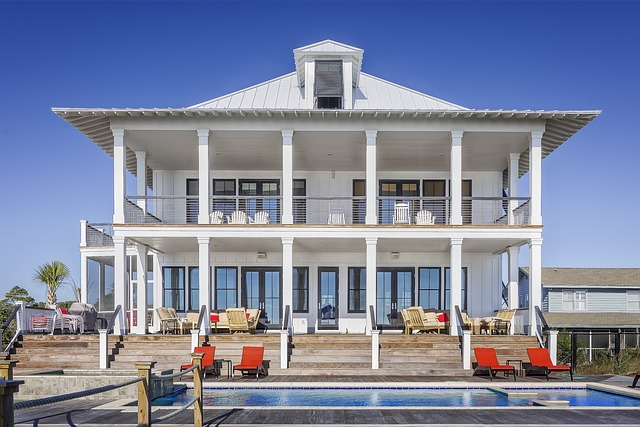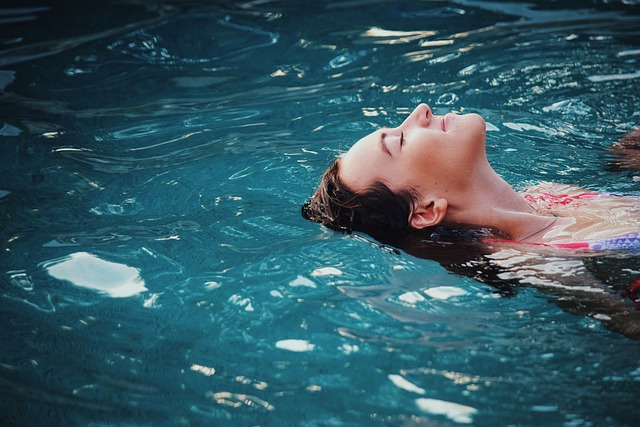How Much is a Pool? If you’re considering adding a pool to your home, one of the most important factors to consider is the cost. Understanding how much a pool will cost you can help you plan your budget and make an informed decision. In this article, we will explore the various factors that influence semi- inground pool costs, different pool materials and their costs, as well as tips to save on pool installation expenses. We will also discuss the pros and cons of having a swimming pool and how it can impact the value of your home. So let’s dive in and discover how much a pool is in your area!
Key Takeaways:
- Pool costs can vary depending on factors such as size, material, design, and additional features.
- The average cost of an inground pool installation is around $35,000.
- The choice of pool material, such as vinyl, concrete, or fiberglass, will affect the overall cost.
- The size of the pool and customization options will also impact the final price.
- Consider getting multiple quotes, choosing a basic pool design, and exploring DIY options to save on installation costs.
Factors Affecting Ingroundg Pool Costs
When it comes to inground pool costs, there are several factors that can influence the overall price of your dream pool. These factors include the size, material, and design of the pool, as well as any additional features or customization options you choose.
Size: The size of the pool plays a significant role in determining its cost. Generally, larger pools will cost more than smaller ones due to the increased materials and labor required for installation.
Material: The choice of pool material can also impact the cost. Vinyl pools tend to be the most affordable option, while concrete pools are typically more expensive. Fiberglass pools fall in between in terms of cost.
Design and Features: Customized designs or additional features such as hot tubs, pool lighting, or waterfalls can increase the overall cost of your inground pool. These design elements require extra materials and labor, which contribute to the final price.
“The cost of an inground pool is influenced by various factors such as size, material, and design. Customization and additional features can also impact the overall cost.” – Pool Installation Expert

Factors Affecting Inground Pool Costs:
| Factor | Impact on Cost |
|---|---|
| Size | Larger pools generally cost more |
| Material | Vinyl: most affordable option Concrete: more expensive Fiberglass: in between |
| Design and Features | Customization and additional features increase cost |
As you plan your inground pool project, keep in mind these factors that can affect the cost. Determining the size, choosing the right material, and deciding on the desired design and features will help you estimate the overall expenses and create a pool that fits your budget.
Inground Pool Materials and Their Costs
When it comes to inground pools, the material used can significantly impact the overall cost. There are three main options to consider: vinyl, concrete, and fiberglass. Each material has its own advantages and price points, allowing you to choose the option that best fits your budget and preferences.
| Pool Material | Average Cost |
|---|---|
| Vinyl | $28,000 |
| Concrete | $50,000 – $100,000 |
| Fiberglass | $46,000 |
Vinyl pools are the most affordable option, with an average cost of around $28,000. These pools feature a vinyl liner that is placed over a frame or wall structure. Concrete pools, on the other hand, are known for their durability and customization options. However, they can be more expensive, with costs ranging from $50,000 to $100,000. Fiberglass pools fall in between, offering a balance of affordability and durability, with an average cost of $46,000.
When deciding on the material for your inground pool, it’s important to consider factors beyond just cost. Vinyl pools are easier to maintain and can be installed relatively quickly, while concrete pools offer endless design possibilities but require more maintenance. Fiberglass pools are known for their smooth and nonporous surface, reducing the need for chemicals and maintenance.
Ultimately, the choice of material will depend on your budget, design preferences, and long-term maintenance goals. Considering the pros and cons of each material will help you make an informed decision and choose the inground pool that best suits your needs.
Small Inground Pool Cost
When it comes to small inground pools, you can expect to pay around $10,000 to $15,000 or more. These pools are typically referred to as plunge pools or spool pools, and they are ideal for lounging and quick dips to cool off. However, it’s important to note that the cost of a small inground pool can vary depending on various factors.
The size of the pool is one such factor. Smaller pools will generally have a lower cost compared to larger ones. Keep in mind that the overall cost will still depend on the specific customization options and additional features you choose for your pool. For instance, if you opt for a small inground pool with a hot tub or pool lighting, the cost may increase.
To give you a better understanding of the pricing, here’s a breakdown of the estimated costs:
| Pool Type | Estimated Cost |
|---|---|
| Small Inground Pool (Plunge Pool) | $10,000 – $15,000+ |
| Small Inground Pool with Hot Tub | $15,000 – $25,000+ |
| Small Inground Pool with Lighting | $12,000 – $18,000+ |
Remember, these estimates are just a starting point and can vary based on your location, the pool builder, and the specific design aspects you choose. It’s always recommended to get multiple quotes from different pool installation companies to ensure you are getting the best price for your small inground pool.
How Pool Size Affects Cost
When it comes to inground pools, size matters. The size of the pool directly impacts the cost of installation, materials, and labor. Generally, the larger the pool, the higher the cost. So, if you’re planning to have a larger pool, be prepared to allocate a larger portion of your budget for it.
To better understand how pool size affects cost, let’s take a look at the average cost per square foot. For example, smaller pools with a size range of 200 to 400 square feet may cost around $50,000 to $75,000. On the other hand, larger pools with a size range of 600 to 900 square feet can cost anywhere from $80,000 to $125,000.
Keep in mind that these are average estimates and the final cost may vary depending on various factors such as the location, complexity of the design, additional features, and choice of materials. It’s important to consult with a pool installation professional to get an accurate estimate based on your specific requirements and preferences.
Table: Cost of Inground Pools by Size
| Pool Size (in square feet) | Estimated Cost Range |
|---|---|
| 200 – 400 | $50,000 – $75,000 |
| 400 – 600 | $75,000 – $100,000 |
| 600 – 900 | $80,000 – $125,000 |
Remember, the cost of owning a pool goes beyond the initial installation. You’ll also need to consider ongoing expenses such as maintenance, water treatment, energy costs for heating or running pool equipment, and insurance. It’s essential to factor in these expenses when budgeting for your pool, regardless of its size.
Inground Pool Installation: Pro vs. DIY
When it comes to installing an inground pool, you have two main options: hiring a professional or doing it yourself (DIY). Both approaches have their pros and cons, and it’s essential to consider factors such as cost, expertise required, and time commitment.
Professional Installation
Hiring a professional pool installer offers several benefits. Firstly, professionals have the knowledge and experience to ensure that the installation process is done correctly and efficiently. They are familiar with local building codes and regulations, ensuring that your pool meets all necessary requirements. Additionally, professional installers have access to specialized equipment and tools, which allows for a smoother installation process.
The cost of professional installation can range from $28,000 to over $65,000, depending on factors such as pool size, material, and customization. While this cost may seem high, it’s important to remember that professional installers provide a level of expertise and guarantee the quality of their work.
DIY Installation
DIY installation can be a more affordable option, but it requires a certain level of skill and knowledge. If you have prior experience with construction or have successfully completed similar projects in the past, you may be able to handle the installation process yourself. However, keep in mind that installing an inground pool is a complex task that requires careful planning, excavation, plumbing, and electrical work.
DIY installation can save you money, as you won’t have to pay for labor costs. However, it’s crucial to consider the potential risks and challenges associated with DIY installation. Mistakes made during the installation process can lead to costly repairs down the line, and you may not have access to the same warranties and guarantees that professionals offer.
| Professional Installation | DIY Installation | |
|---|---|---|
| Cost | Ranges from $28,000 to over $65,000 | Potentially lower, but depends on individual skill and experience |
| Expertise Required | Knowledge and experience in pool installation | Construction and installation skills |
| Time Commitment | Relatively quick and efficient | Significant time investment |
| Warranties and Guarantees | Usually provided by professional installers | May not have access to the same warranties and guarantees |

Ultimately, the decision between professional installation and DIY installation depends on your skills, budget, and comfort level with taking on a large-scale project. If you’re confident in your abilities and have the necessary experience, DIY installation can be a rewarding and cost-effective option. However, if you prefer the peace of mind that comes with professional expertise and warranty protection, hiring a professional pool installer is the way to go.
Tips to Save on Inground Pool Installation Costs
If you’re planning to install an inground pool but want to save on costs, there are several strategies you can employ. These tips will help you budget and make affordable choices without compromising on the quality of your pool. Here are some ways to cut down on inground pool installation costs:

Get Multiple Quotes
Before committing to a pool installation company, make sure to gather multiple quotes from different providers. This will give you a better understanding of the market prices and help you negotiate for a better deal. Compare the quotes carefully, considering the materials, labor, and customization options offered by each company. Remember, choosing the lowest price isn’t always the best option; ensure the company has a good reputation and a track record of delivering quality work.
Choose a Basic Design
Customized pool designs with unique shapes and intricate features can significantly increase costs. To save money, opt for a basic pool design that meets your needs without unnecessary frills. A rectangular or oval-shaped pool will be more cost-effective than irregular shapes or complex designs. Focus on functionality and usability rather than extravagant aesthetics.
Consider Fiberglass Pools
When it comes to pool materials, fiberglass is often a more affordable option compared to concrete or vinyl liner pools. Fiberglass pools require less labor and time for installation, which can translate into cost savings. Additionally, fiberglass is a durable material that requires less maintenance, reducing long-term expenses. Consider the pros and cons of each material before making a decision.
By following these tips, you can save on inground pool installation costs and still enjoy a beautiful, high-quality pool. Remember to plan your budget carefully and consider the long-term maintenance expenses to ensure your pool remains a valuable investment.
How Much Value Does a Pool Add to Your Home?
Adding a pool to your home can be a significant investment, both in terms of upfront costs and ongoing expenses. However, it’s important to consider the potential value that a pool can add to your property. While the value can vary depending on factors such as location, neighborhood, and the condition of the pool, it’s estimated that a pool can increase a home’s value by 5% to 8%.
Living in a warm climate and a high-end neighborhood can further enhance the value of your home with a pool. It offers an attractive feature to potential buyers who are looking for a luxurious and convenient way to enjoy the outdoors. However, it’s essential to note that the increase in value may not always cover the full cost of installation and maintenance, so it’s crucial to weigh the financial implications carefully.
Factors Influencing the Value
Several factors can influence the value that a pool adds to your home:
- Location: Properties in warm climates or areas with a high demand for pools are likely to see a higher value increase.
- Neighborhood: The desirability and exclusivity of your neighborhood can impact the value that a pool brings.
- Pool Condition: A well-maintained and aesthetically pleasing pool is more likely to attract potential buyers and command a higher value.
It’s important to keep in mind that the value added by a pool is not solely based on financial gains. The enjoyment and lifestyle benefits it provides to you and your family should also be considered. Ultimately, the decision to install a pool should align with your personal preferences and long-term goals for your home.
| Pros of Having a Pool | Cons of Having a Pool |
|---|---|
| Provides a space for relaxation and recreation.Enhances your outdoor living area and increases entertainment options.Offers a convenient way to exercise and stay active. | Requires ongoing maintenance and regular cleaning.Can result in higher utility bills due to increased water and energy consumption.Potential safety hazards, especially for young children. |
Ultimately, determining the value of a pool goes beyond monetary considerations. It’s essential to evaluate your lifestyle, budget, and long-term plans for your home before making a decision. Consider consulting with real estate professionals in your area to get a better understanding of the market dynamics and potential value increase associated with adding a pool to your property.
Pros and Cons of Having a Swimming Pool
Having a swimming pool can be a wonderful addition to your home and lifestyle, but it also comes with its own set of pros and cons. Understanding both sides can help you make an informed decision about whether a swimming pool is right for you.

The Pros:
- Entertainment and Recreation: A swimming pool provides a convenient and private space to entertain family and friends. It’s a great place for gatherings and outdoor parties, offering hours of fun and relaxation.
- Convenience and Fitness: With a swimming pool at your disposal, you have the convenience of swimming whenever you want, without having to travel to a public facility. It’s a great way to stay fit, as swimming is a low-impact exercise that works the entire body.
- Escape from the Heat: During hot summer days, a pool provides a refreshing escape from the heat. You can cool down and enjoy the outdoors without having to endure high temperatures.
The Cons:
- Expense and Maintenance: One of the main drawbacks of having a swimming pool is the upfront and ongoing costs. The initial installation cost, regular maintenance, chemical treatments, and utility expenses can add up over time.
- Limited Usage: If you live in a colder climate, you may only be able to use your pool for a few months out of the year. This limited usage may not justify the cost and effort involved in owning a pool.
- Safety Hazards: Swimming pools can pose safety risks, especially if you have young children. It’s crucial to implement safety measures such as pool fences, alarms, and strict supervision to prevent accidents and drowning incidents.
Considering the pros and cons of having a swimming pool is essential before making a decision. While the benefits of entertainment, convenience, and cooling off are enticing, the expenses, maintenance, limited usage, and safety concerns require careful consideration. Evaluate your lifestyle, budget, and long-term goals to determine if owning a pool aligns with your needs and priorities.
Conclusion
The cost of a pool can vary depending on factors such as size, material, design, and additional features. Inground pool costs typically range from $28,000 to over $65,000, with an average cost of $35,000. When considering installing a pool, it’s important to carefully consider your budget, desired pool size, and available space in your backyard.
Choosing the right pool material is also crucial. Vinyl pools are the most affordable option, while concrete pools tend to be more expensive. Fiberglass pools offer a middle-ground in terms of cost. Each material has its own advantages and disadvantages, so it’s important to consider factors such as durability and maintenance.
It’s also important to assess the long-term costs of maintaining a pool and the potential impact on your home’s value. While having a pool can increase the value of your home by 5% to 8%, it may not fully cover the installation and maintenance costs. Additionally, it’s crucial to weigh the pros and cons of having a pool, considering factors such as entertainment value, convenience, ongoing expenses, and potential safety hazards.
AAA Pool Maintenance, with over 50 years of expertise in pool and spa maintenance, construction, and repairs, is a trusted pool contracting company serving Camarillo and Ventura County. Their team of professional pool builders and subcontractors are skilled in pool renovation, design, and installation. Contact AAA Pool Maintenance at (805) 987-0975 to discuss your project and benefit from their reliable services.
In conclusion, before making a decision, take the time to thoroughly evaluate your options and consider whether a pool aligns with your lifestyle and preferences. With careful planning and consideration, you can make an informed choice about pool cost, design, and features that best suit your needs.







